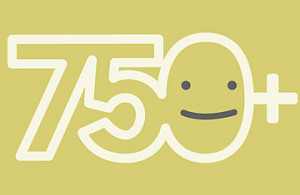Kathleen Finnegan
Home(818) 601-0056
give your credit score a boost!

Unfortunately, most consumers still do not know basic facts about credit scores and their financial significance, The truth is, your credit score, sometimes called a FICO score, is a number based on the information in your credit file that shows how likely you are to pay a loan back on time — the higher your score, the less risky you are.
There are three major credit bureaus: Experian, Equifax and TransUnion. The credit bureaus write up your report based on any information they received about you from companies that gave you credit in the past, such as your payment history, the length of your credit history, the types of credit you have and amounts owed.
From that report, a credit score is derived — which ranges from 300 to a perfect 850. That score is a quick way for lenders to assess how risky you are as a potential borrower. The higher your score, the less risk you pose to lenders and the more likely it is that you’ll get their best available rates. Consumers with scores above 700 are usually charged relatively low rates, and those with scores above 760 are charged the lowest rates.
Consumers with scores below 600 are typically charged relatively high loan rates, and if your credit score is really bad, you may be not be able to borrow at all. Any late payments you made will lower your score, but establishing or re-establishing a good track record of making payments on time will raise your score.
Under the Fair and Accurate Credit Transactions Act , you can obtain one annual free copy of your credit report. But you will still have to pay a fee to get your scores. And once you know your score, you can follow these tips from my FICO to improve your rating:
1. Pay your bills on time. Delinquent payments can have a major negative impact on your score and the longer you pay your bills on time, the better your score. For example, someone with an average credit rating of 707 can raise their score by as much as 20 points by paying all their bills on time for one month.
2. Keep balances low on credit cards. High outstanding debt can affect your score. Maxing out your credit cards could lower your average score by as much as 70 points.
3. Don’t open a number of new credit cards that you don’t need. New accounts will lower your average account age, which could actually lower your score by up to 10 points.
4. Have credit cards – but manage them responsibly. In general, having credit cards and installment loans (and making timely payments) will raise your score. Someone with no credit cards, for example, tends to be higher risk than someone who has managed credit cards responsibly.
5. Closing an account doesn’t make it go away. A closed account will still show up on your credit report and may be factored into the score.
For more information visit www.annualcreditreport.com or call 877-322-8228.
Thanks for visiting!
Kathleen Finnegan
23925 Park Sorrento
Calabasas, Ca 91302
#01193021
Office 818-876-3111
Cell 818-601-0056
 Kathleen has been active in the Calabasas real estate market for over 20 years. Have a question?
Kathleen has been active in the Calabasas real estate market for over 20 years. Have a question? 

